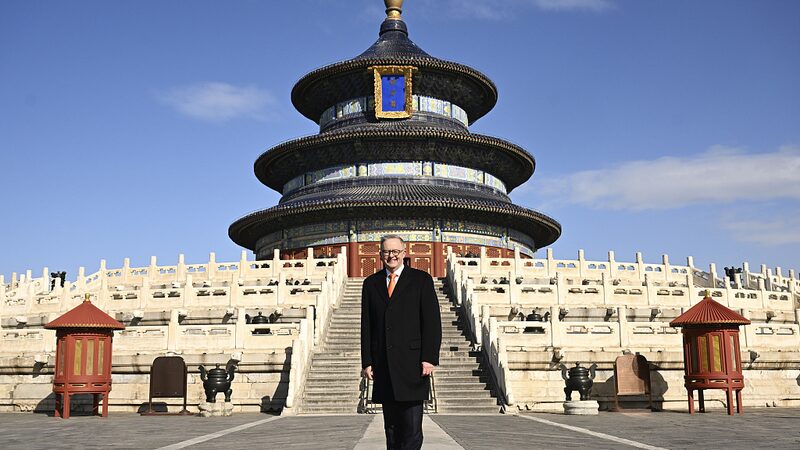Australian Prime Minister Anthony Albanese's visit to the Chinese mainland marks a significant moment in the bilateral relations between Australia and China. This is the first visit by an Australian leader since Malcolm Turnbull in 2016, signaling a potential stabilization in their relationship.
While some view Albanese's trip as the dawn of improved ties, many analysts argue that it represents a stabilization rather than a substantial enhancement. Albanese has emphasized the differences in values and political systems between Australia and the Chinese mainland, highlighting that the exchanges are driven by mutual self-interest, which makes them inherently fragile.
From an economic standpoint, China remains an indispensable partner for Australia. Despite efforts to diversify its economic relations, Australia has encountered significant obstacles. A proposed free trade agreement with the European Union faces continuous delays as European leaders favor trade barriers over cooperation. Additionally, the appointment of former Prime Minister Tony Abbott as the special trade envoy to India has yielded limited economic growth and investment, keeping economic relations with India modest.
Albanese arrives in China amidst several domestic challenges. The recent national referendum on granting constitutional recognition and an advisory voice to parliament for Indigenous Australians was overwhelmingly rejected across all states, despite the government's vigorous campaign. Furthermore, Australia is grappling with a national cost of living crisis, devastating bushfires in the eastern states, and difficulties in meeting climate change mitigation targets.
The economic relationship between Australia and China is mutually beneficial. China's ongoing economic expansion drives demand for Australian iron ore and lithium, essential for electric vehicles and other green technologies. This presents opportunities for cooperation, particularly in climate change mitigation. While coal is not traditionally considered a "green" export, Australian coal's higher quality results in lower carbon emissions, aligning with China's emphasis on environmental protection.
During his visit, Albanese will also navigate complex political landscapes. As a former cabinet minister, he is aware of the internal dynamics within the Australian Labor Party that previously hindered leaders like Kevin Rudd. This political backdrop sets boundaries on how far Albanese can push for improved ties with the Chinese mainland without facing resistance from his party, the opposition, or influential allies. Notably, Albanese consulted with U.S. President Joe Biden before traveling to Shanghai, underscoring the intricate balance between strengthening Australia-China relations and maintaining ties with the United States.
Reference(s):
cgtn.com




